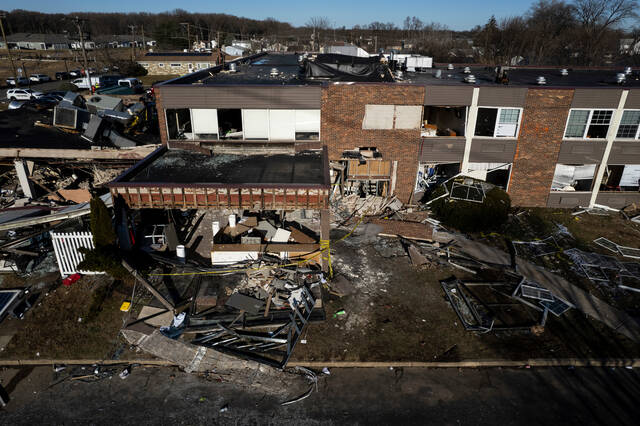The pandemic that drove students from campuses in March 2020 also accelerated a decadeslong shift away from using the SAT/ACT in college admission. By last spring, more than 8 in 10 colleges nationally and in Pennsylvania no longer required standardized tests.
That trend could be reversing itself — at least among the nation’s most competitive campuses.
On Monday, Dartmouth College announced it will reinstate the SAT requirement beginning with the class entering in fall 2025. The Ivy League school said it was doing so for some of the reasons previously cited by other institutions to justify why they were no longer relying on standardized tests.
In a message to campus Monday, Dartmouth President Sian Leah Beilock pointed to her institution’s longstanding efforts to build talented and diverse classes and that not submitting scores could disadvantage students from lower socioeconomic households.
“Our holistic admissions approach to identifying the most promising students, regardless of their background, benefits from a careful consideration of testing information as part of their application package,” Beilock said. “In particular, SAT/ACTs can be especially helpful in identifying students from less-resourced backgrounds who would succeed at Dartmouth but might otherwise be missed in a test-optional environment.”
The Massachusetts Institute of Technology announced a similar move in March 2022.
In Western Pennsylvania, the University of Pittsburgh and its branches at Greensburg, Johnstown, Bradford and Titusville are test-optional through at least fall 2025. So are Penn State University campuses. Carnegie Mellon University is test-optional through 2024, according to its website.
Asked about Dartmouth’s decision, Pitt spokesman Jared Stonesifer said Monday that “Pitt will continue to be test-optional through fall 2025. The university is evaluating how best to move forward in future years.”
Carnegie Mellon had no immediate comment, nor did officials at Penn State University.
At Penn State, the commonwealth’s flagship public institution, applicants are not required to take the SAT or ACT through fall 2025.
“One intent of an extension is to continue the standardized testing relief to students. There was already anxiety about tests before the pandemic. Covid-19 added even more stressors and changed college admissions,” said a statement last year from Rob Springall, assistant vice president for Enrollment Management and executive director of Undergraduate Admissions at Penn State.
“Two more years will also give Penn State the benefit of time to see what has permanently changed and how we can do our work even better,” he added. “We are making this announcement now so current high school juniors and sophomores can make their college application and testing plans.”
Pitt officials also said during the pandemic that standardized tests potentially disadvantaged certain students.
“Our decision to continue a test-optional approach reflects our deep commitment to accessibility for students whose diverse talents and potential for leadership may not be well-measured by standardized tests,” said then-Pitt Provost and Senior Vice Chancellor Ann Cudd. “It is critically important that holistic evaluation of our students remains central to our admissions approach.”
Nationwide, what started as a trickle of colleges to make the exam optional — 57 back in 1987 — exploded during the past decade and further mushroomed as covid-19 shuttered campuses and learning went remote.
As of last June, more than 1,800 colleges and universities did not require the SAT or ACT, from regional public and private universities to the Ivy League, according to FairTest, a New York City-based group long critical of standardized tests’ ability to predict college success. The list has continued to grow.
In Pennsylvania, about 130 test-optional or test-free campuses were logged, including Duquesne University, Carlow, Chatham, La Roche, Robert Morris and Point Park universities, among other campuses as well as those belonging to the State System of Higher Education.
In the days before the Supreme Court struck down the use of race in college admissions last June, FairTest Executive Director Harry Feder predicted even more schools would drop the requirement.
“If the Supreme Court bars affirmative action in admissions decisions,” Feder said, “we expect that very few schools will continue to require the ACT or SAT. And it is likely that many more graduate programs will eliminate requirements for exams such as the GRE, GMAT, LSAT and GMAT.”
At MIT, Dean of Admissions and Student Financial Services Stuart Schmill said in a blog post on March 28, 2022, that standardized tests are not at the heart of the university’s admissions approach and the institute does not prefer students with perfect scores.
“At the same time, standardized tests also help us identify academically prepared, socioeconomically disadvantaged students who could not otherwise demonstrate readiness because they do not attend schools that offer advanced coursework, cannot afford expensive enrichment opportunities, cannot expect lengthy letters of recommendation from their overburdened teachers,” he said.











